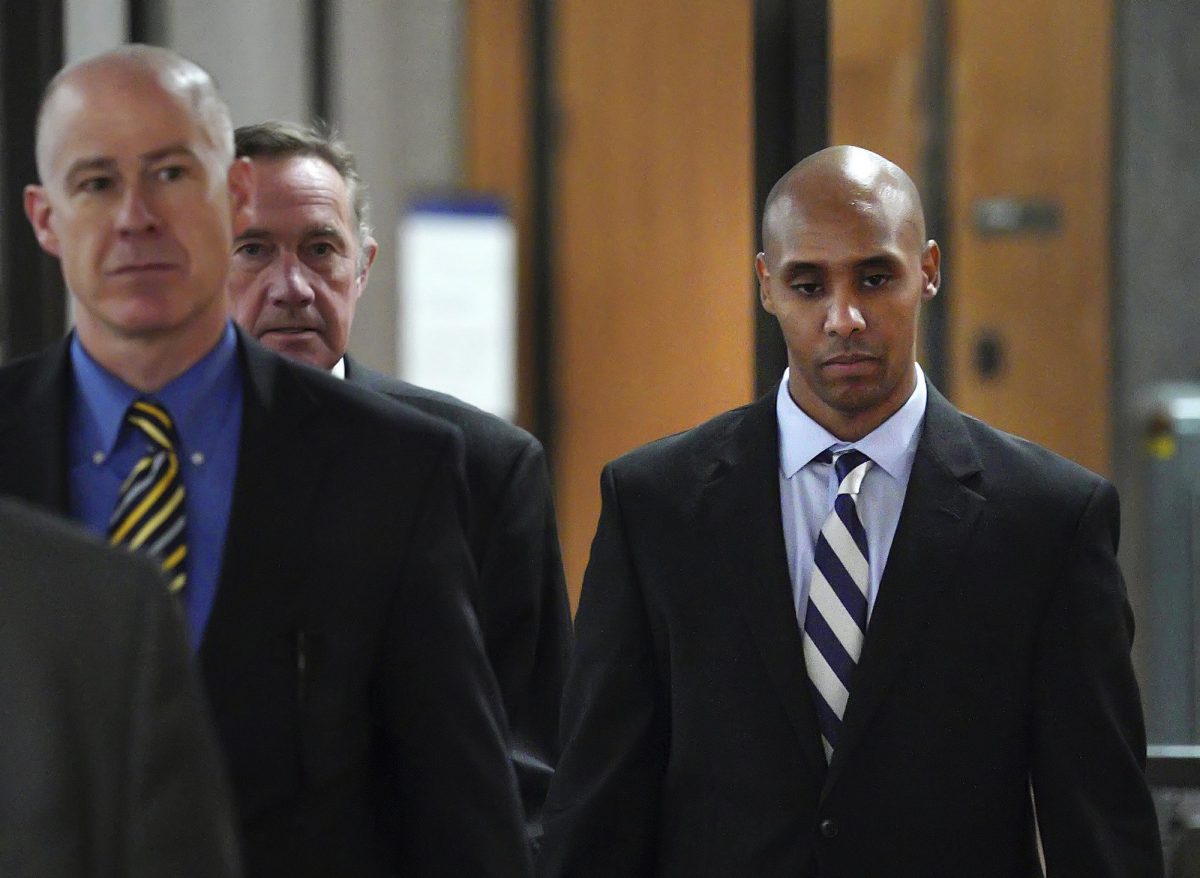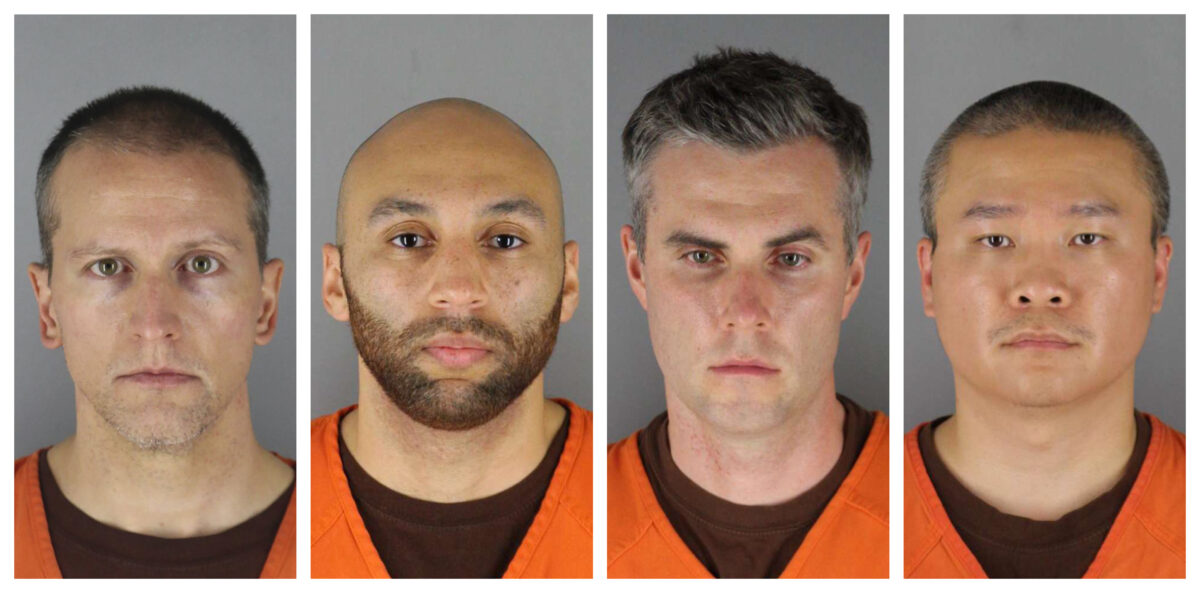MINNEAPOLIS—A judge on Thursday granted prosecutors’ request to add a third-degree murder charge against a former Minneapolis police officer charged in George Floyd’s death.
Hennepin County Judge Peter Cahill reinstated the charge after the former officer, Derek Chauvin, failed to get appellate courts to block it. Cahill had earlier rejected the charge as not warranted by the circumstances of Floyd’s death, but an appellate court ruling in an unrelated case established new grounds.
Chauvin already faced second-degree murder and manslaughter charges.
The dispute over the third-degree murder charge revolved around wording in the law that references an act “eminently dangerous to others.” Cahill’s initial decision to dismiss the charge had noted that Chauvin’s conduct might be construed as not dangerous to anyone but Floyd.
But prosecutors sought to revive the charge after the state’s Court of Appeals recently upheld the third-degree murder conviction of another former Minneapolis police officer in the 2017 killing of an Australian woman. They argued that the ruling established precedent that the charge could be brought even in a case where only a single person is endangered.
Arguments over when precedent from former officer Mohamed Noor’s case took effect went to the state’s Supreme Court, which on Wednesday said it would not consider Chauvin’s appeal of the matter. Cahill said Thursday that he accepts that precedent is now clearly established.

“I feel bound by that and I feel it would be an abuse of discretion not to grant the motion,” he said.
Floyd was declared dead on May 25 after Chauvin pressed his knee against the Floyd’s neck for about nine minutes.
Jury selection resumed Thursday with a sixth person chosen, a man who described himself as outgoing and a soccer fan for whom the prospect of trial was “kind of exciting.” The pool so far includes five men and one woman.
At least three weeks have been set aside to complete a jury of 12 plus two alternates.
Attorneys gave considerable attention to the jury pool’s attitudes toward police in the first two days of questioning, trying to determine whether they’re more inclined to believe testimony from police over evidence from other witnesses to the fatal confrontation.
The first juror picked Wednesday, a man who works in sales management and who grew up in central Minnesota, acknowledged writing on his questionnaire that he had a “very favorable” opinion of the Black Lives Matter movement and a “somewhat unfavorable” impression of the Blue Lives Matter countermovement, yet “somewhat agreed” that police don’t get the respect they deserve. He said he agrees that there are bad police officers.
“Are there good ones? Yes. So I don’t think it’s right to completely blame the entire organization,” he told the court under questioning from prosecutor Steve Schleicher.
He said he would be more inclined to believe an officer over another witness, but that he could set that aside and evaluate each witness on their own merits.
The second juror chosen, a man who works in information technology security, marked “strongly agree” on a question about whether he believes police in his community make him feel safe. His community wasn’t specified—jurors are being drawn from all over Hennepin County, which includes Minneapolis and many suburbs.
“In my community, I think when there is suspicious activity the police will stop by, they will ask a question,” he said. “I think that sense of community is all we want right? We want to live in a community where we feel safe, regardless of race, color and gender.”
Schleicher noted that the man also stated in his questionnaire that he strongly disagreed with the concept of “defunding” the police, which has become a political flashpoint locally and across the country in the wake of Floyd’s death.
“While I necessarily might not agree with the police action in some situation, I believe that in order for police to make my community safe they have to have the money,” he replied.
The questionnaire explores potential jurors’ familiarity with the case and their own contacts with police. Their answers have not been made public, and the jurors’ identities are being kept secret.
Chauvin and three other officers were fired. The others face an August trial on aiding and abetting charges. The defense hasn’t said whether Chauvin will testify in his own defense.

Schleicher used a peremptory challenge Wednesday to remove from the panel a woman who has a nephew who is a sheriff’s deputy in western Minnesota. She said she was dismayed by the violence that followed Floyd’s death.
“I personally didn’t see any usefulness to it,” she said. “I didn’t see anything accomplished by it, except I suppose bring attention to the frustrations of the people involved. But did I see anything useful coming out of the burning of Lake Street and that sort of thing? I did not.”


